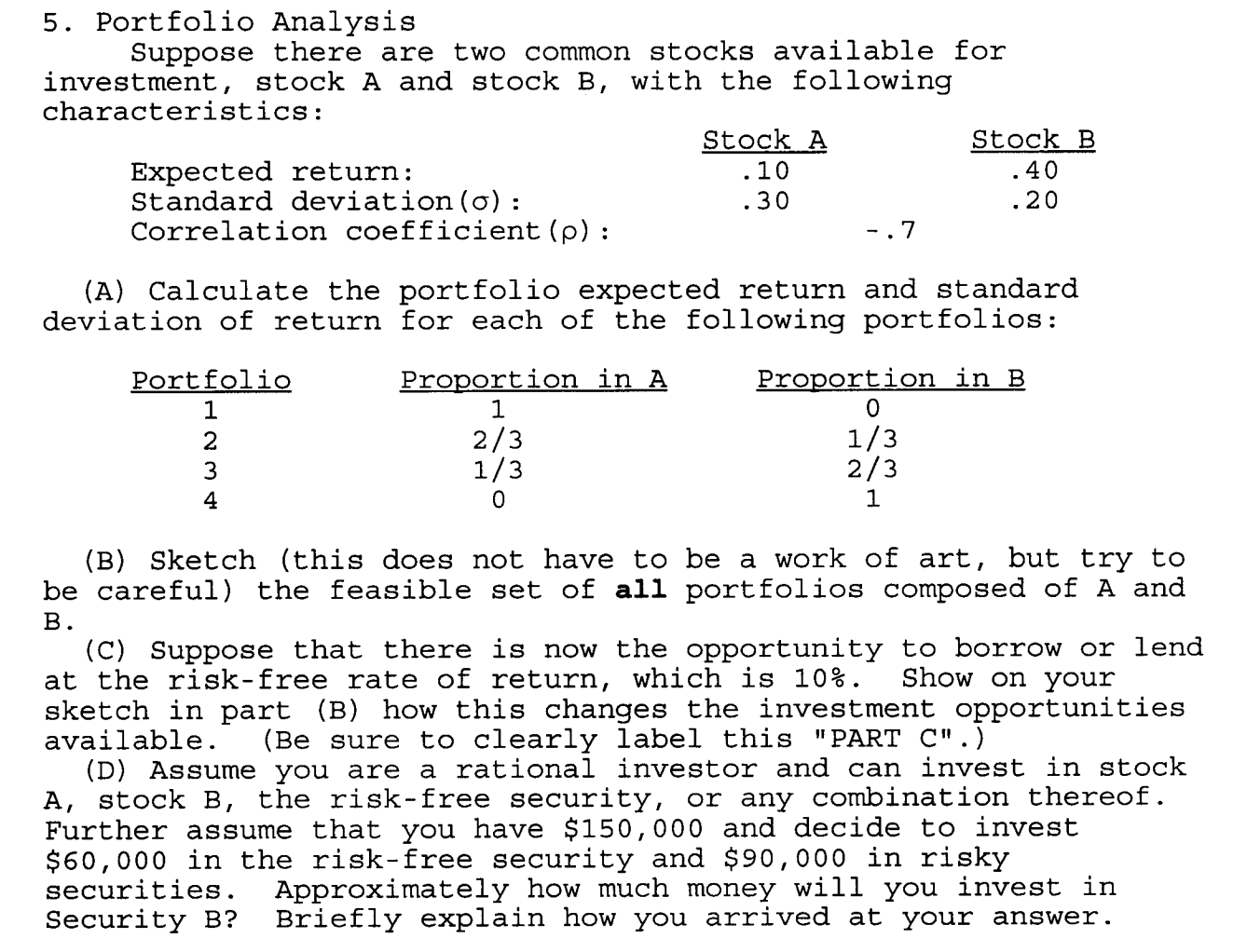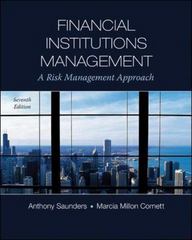Part C Please 
5. Portfolio Analysis Suppose there are two common stocks available for investment, stock A and stock B, with the following characteristics: Stock A Stock B Expected return: 10 .40 Standard deviation (o): .30 .20 Correlation coefficient (p): -.7 (A) Calculate the portfolio expected return and standard deviation of return for each of the following portfolios: Portfolio 1 2 3 4 Proportion in A 1 2/3 1/3 0 Proportion in B 0 1/3 2/3 1 (B) Sketch (this does not have to be a work of art, but try to be careful) the feasible set of all portfolios composed of A and B. (C) Suppose that there is now the opportunity to borrow or lend at the risk-free rate of return, which is 10%. Show on your sketch in part (B) how this changes the investment opportunities available. (Be sure to clearly label this "PART C".) (D) Assume you are a rational investor and can invest in stock A, stock B, the risk-free security, or any combination thereof. Further assume that you have $150,000 and decide to invest $60,000 in the risk-free security and $90,000 in risky securities. Approximately how much money will you invest in Security B? Briefly explain how you arrived at your answer. 5. Portfolio Analysis Suppose there are two common stocks available for investment, stock A and stock B, with the following characteristics: Stock A Stock B Expected return: 10 .40 Standard deviation (o): .30 .20 Correlation coefficient (p): -.7 (A) Calculate the portfolio expected return and standard deviation of return for each of the following portfolios: Portfolio 1 2 3 4 Proportion in A 1 2/3 1/3 0 Proportion in B 0 1/3 2/3 1 (B) Sketch (this does not have to be a work of art, but try to be careful) the feasible set of all portfolios composed of A and B. (C) Suppose that there is now the opportunity to borrow or lend at the risk-free rate of return, which is 10%. Show on your sketch in part (B) how this changes the investment opportunities available. (Be sure to clearly label this "PART C".) (D) Assume you are a rational investor and can invest in stock A, stock B, the risk-free security, or any combination thereof. Further assume that you have $150,000 and decide to invest $60,000 in the risk-free security and $90,000 in risky securities. Approximately how much money will you invest in Security B? Briefly explain how you arrived at your







